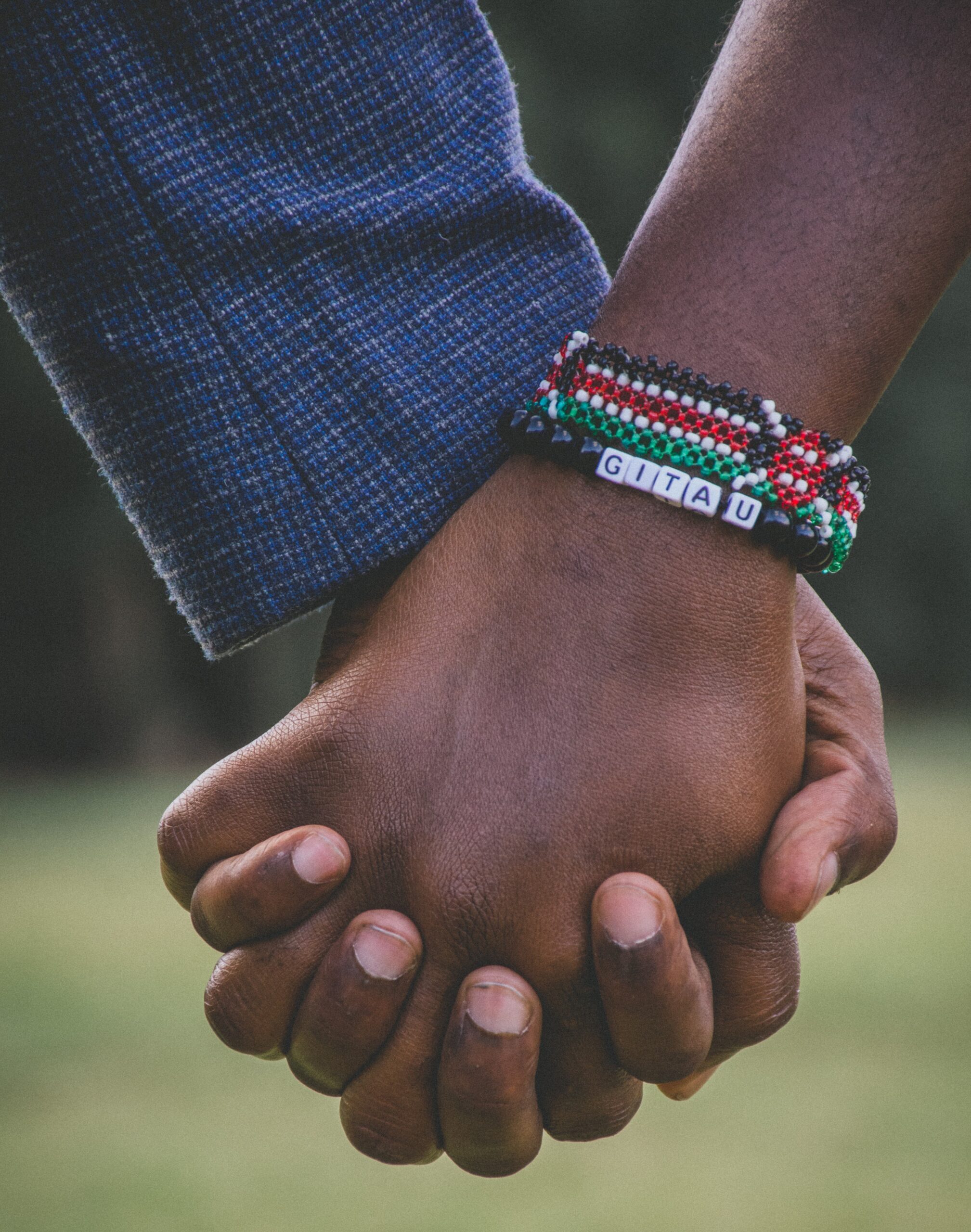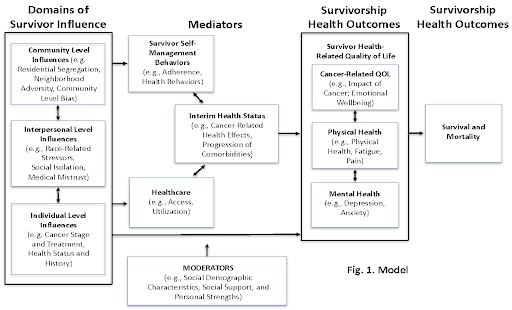THEORETICAL MODEL
Unequal access to care is due to social and economic factors and systemic racism
The ARISE study is based on a social-ecological model, which assumes differences in health and health outcomes between African American and white cancer survivors are due to social and economic factors and systemic racism that have resulted in unequal access to medical care, health insurance, and healthy food.
A complete list of measures can be found here.
AIM 1
The research team, in partnership
with the ARISE Action Council,
created a model of quality of life in
African American survivors that was
based on previous research and
community experiences.
This study will also evaluate the
success of this partnership based on
feedback from community members
and their perceptions of the
collaboration experience.
AIM 2
The study is following 600 African
American cancer survivors in the
Detroit metro area for 2 years to
understand their experiences with
medical mistrust, racism, and other
factors that may influence their
cancer care experience.
The purpose is to empirically
identify factors that may be driving
poor quality of life in African
American cancer survivors.
AIM 3
The ARISE investigators and the
ARISE Action Council will
collaborate on an action plan for
disseminating study findings to
scientific and lay audiences.
The goal is to make
recommendations for future
interventions and
community-based efforts to
reduce and eliminate the factors
that are underlying poor quality
of life among African American
survivors.
Follow Us on Social media
STUDY Progress

“Growing stronger, full of hope”
As of February 2023, we are nearing the end of our accrual period for Aim 2. Of the 722 African American survivors referred by Detroit ROCS study, 501 (69%) have agreed and consented to be a part of the ARISE study. Of these, 465 (93%) have completed the baseline assessment, 315 (63%) have completed the assessment at 6 months, and 215 (43%) have completed the assessment at 12 months. The final assessment at 24 months will begin in March 2023. We expect to recruit the remaining 100 by the fall of 2023.

